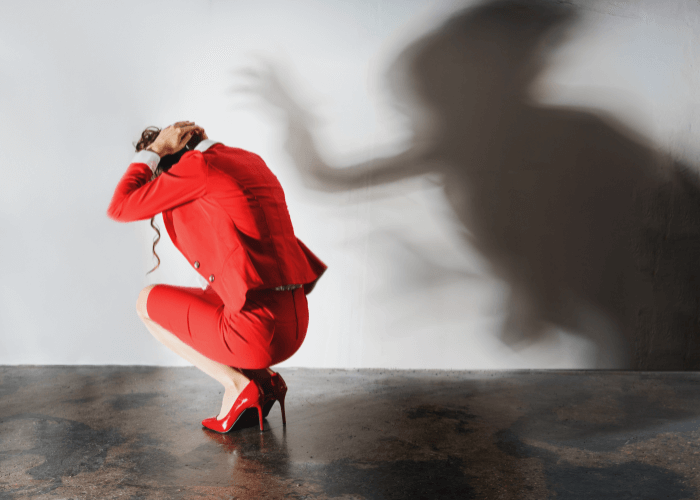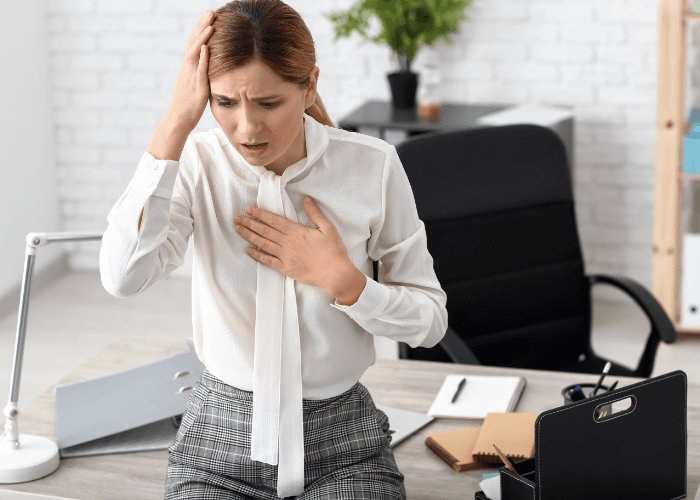How To Stop a Panic Attack?
Panic attacks are characterized by an intense feeling of anxiety that overwhelms you and causes a variety of physical and emotional symptoms. The sense of danger and dread is often accompanied by shortness of breath, racing heart, nausea, and throat tightness that can make it difficult to breathe properly.
This cocktail of unpleasant experiences storms in rapidly and can heavily influence your quality of life. It can last from five to over thirty minutes, leaving you frustrated and restless for hours to come. You can even experience panic attacks when waking up, thus definitely not beginning the day at your very best.
In the paragraphs below, we are digging deeper into the subject of panic attacks, including their potential causes and the things you can do to overcome them timely.
What Triggers Panic Attacks?
Panic attacks can derive from both physical and emotional origins and, sometimes, from a combination of both. Though increasingly common, this condition is far from uncomplicated from a psychological point of view, so generalizations are rarely a working solution.
There isn’t a single thing you can blame panic attacks on. Anyway, some proven panic attacks causes are:
- Traumatic experiences, violence, and abuse;
- Major life stress that goes unaddressed;
- Hormonal or chemical imbalance in the body;
- Unhealthy habits such as smoking, drug use, or high caffeine intake;
- Chronically worsened sleeping patterns and sleep deprivation;
- Genetic predisposition to anxiety and/or panic attacks;
- Stressful working environment, burnout, etc.
Unlike these general risk factors, immediate panic attack triggers are highly person-specific. For example, a panic episode can be provoked by certain trauma reminders, people’s behaviors, or even climate specifics such as too hot or too cold weather. Often, panic attacks seem to come out of nowhere, making it challenging for a person to recognize its actual trigger.
Can Panic Attacks Kill You?
If you’ve ever experienced a panic attack, you already know how frightening the combination of symptoms can get. And that’s especially true when it comes to the first-ever encounter with the condition. In fact, many people share that going through a harsh episode can leave them wondering if they’re experiencing panic attacks or heart attack.
The truth is that panic attacks can’t kill you, and they usually won’t cause any physical harm. That’s a fundamental piece of information you should remember every time you encounter a panic attack, as it will help you reduce the severity and duration of the symptoms.
Though some panic attacks signs such as a racing heartbeat and shortness of breath might make you think you’re dying, you’re safe.
How Do You Stop a Panic Attack?
There is no single science-approved tactic for stopping a panic attack midway through. Instead, giving yourself help with panic attacks is a journey you should walk until you find what works best for you.
This being said, panic attacks help professionals share different strategies you can try in order to prevent and discontinue a harsh anxiety episode. And these are:
- Focus on your breathing. If you’re experiencing short and sharp breaths, try breathing as deeply, calmly, and gently as possible. First, breathe in from your nose; then hold your breath for a couple of seconds; finally, breathe out through your mouth.
- Stay grounded in reality. First, recognize what’s happening to you, and don’t let anxiety feed on your fear for your health – you’ll be okay, and this will pass. Then, focus your attention on the physical world around you and understand that nothing’s changed except for your subjective perceptions.
- Control your thoughts. Keep repeating to yourself that you’re strong, you’re safe, and you will go through this untouched. If that’s not achievable, write yourself a script of comforting and reassuring words and wear it in your pocket. Then, when the panic attack kicks in, bring it out and read it.
- Engage with immediate comfort-bringers. Play a song you love, give a call to your best friend, look at a picture from your happiest day, or just pet your dog or cat if you have one.
- Learn to practice progressive muscle relaxation. Letting go of the tension in each part of your body will calm you down. And though this can be hard to achieve in the beginning, soon enough, you’ll be able to guide the process yourself in times of need.
Last but not least – never hesitate to seek professional counseling if panic attacks take too much of you. Cognitive-behavioral therapy proves a long-term working solution as it digs deeper into the origins of your condition and helps you heal the wounds your body is unconsciously reacting to.
How Do I Stop a Panic Attack in 3 Minutes?
If you’re attending an event or you’re in the middle of something important to you, you’ll definitely want to deal with your panic attack as quickly as possible.
The best way to try and do this is to breathe, focus, and accept the situation. Don’t sink deeper into panic and let it unveil like a physical and not an emotional state. If you’re well-prepared to stay confident, physical symptoms will only brush the surface without ever evolving into the full-power dread of a harsh panic attack.
Once again, there are different lifestyle habits you can stick to in order to prevent panic attacks. Sleep, nutrition, and rest are, for example, among the most important ones on the list. If you put conscious effort into actually taking care of yourself, you will be able to reduce both the frequency and the severity of your anxiety attacks.
What Is the 3 3 3 Rule for Anxiety?
There is another tactic for anxiety management worth mentioning, and its originator is called Tamar Chansky – a psychologist and author of the book Freeing Yourself from Anxiety. He proposes the easy-to-follow 3 3 3 rule:
- Look around you and name three different things you can see.
- Then, name three different things you can hear.
- Finally, move three different parts of your body.
This simple exercise can ground you and serve you as a powerful reality check. It will keep your mind focused on yourself and your immediate environment, thus distracting you from conspiring about non-existent threats that bring you down.



